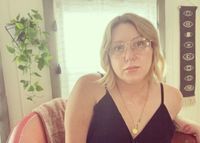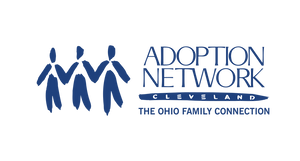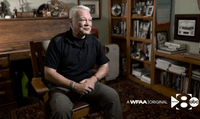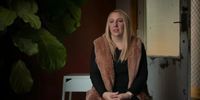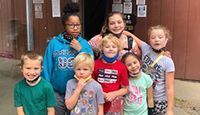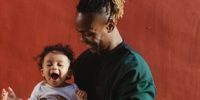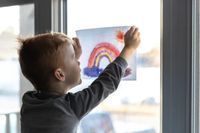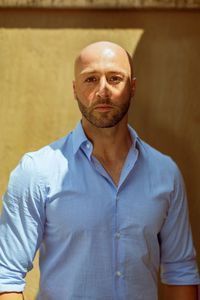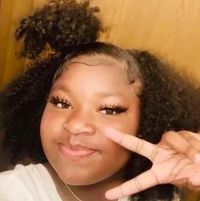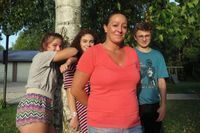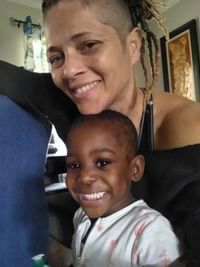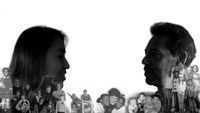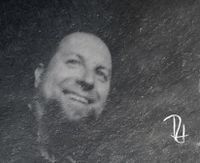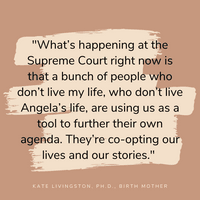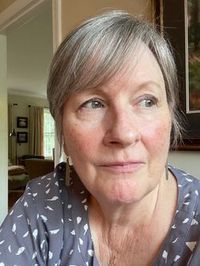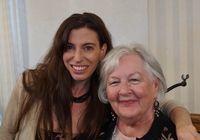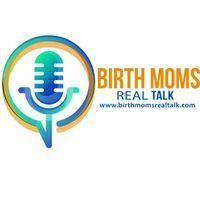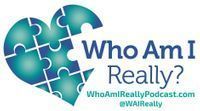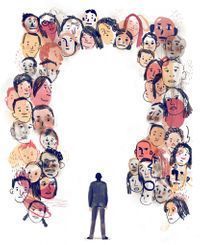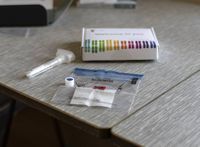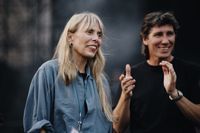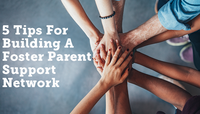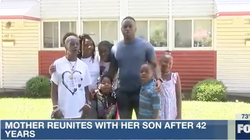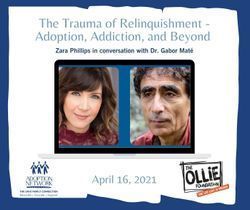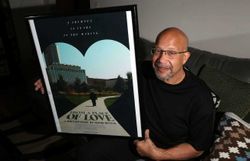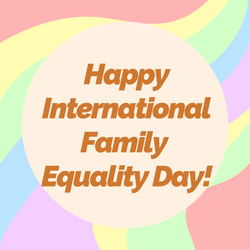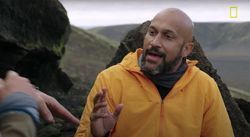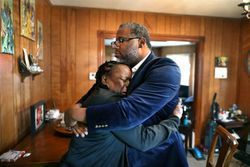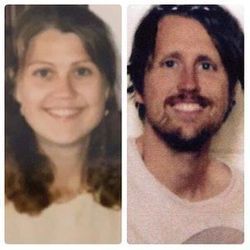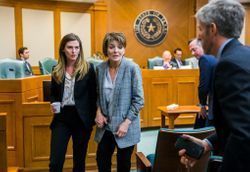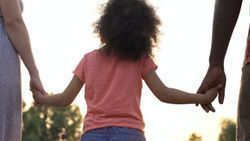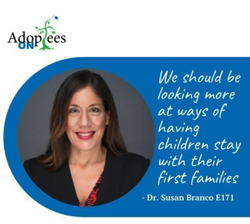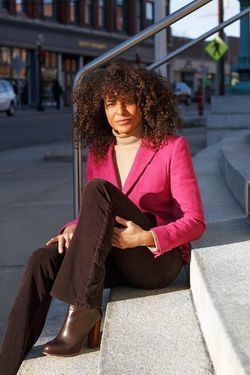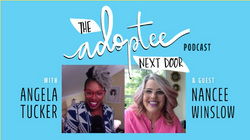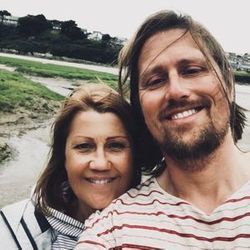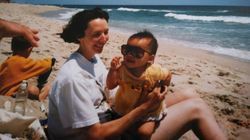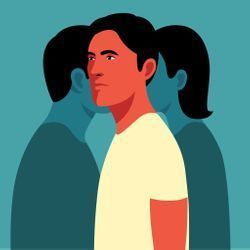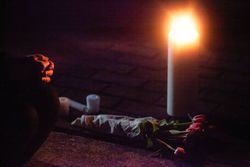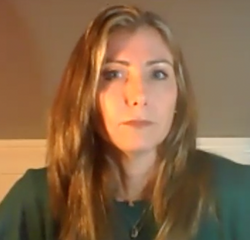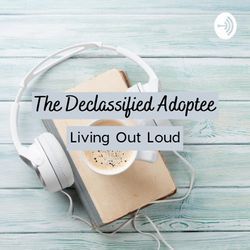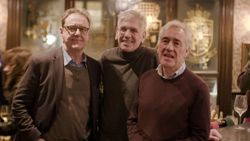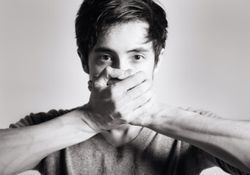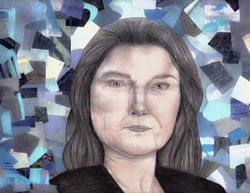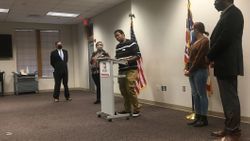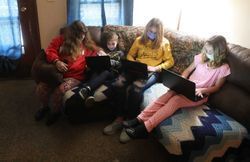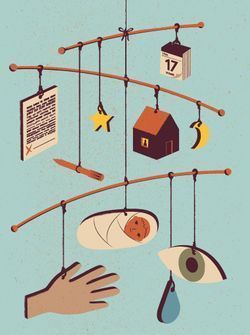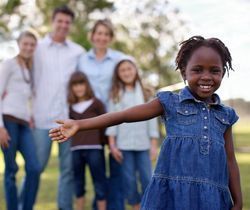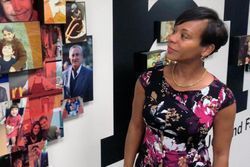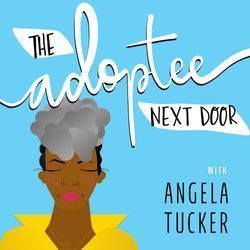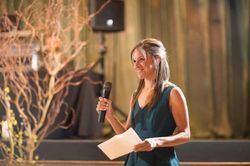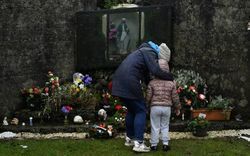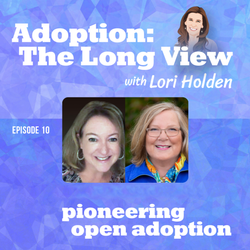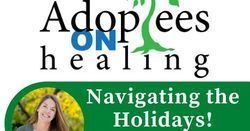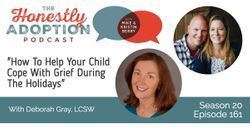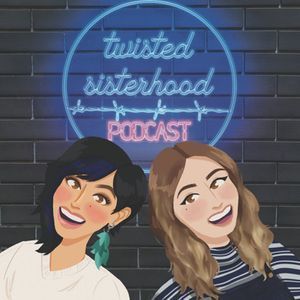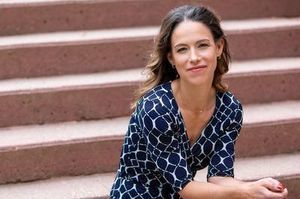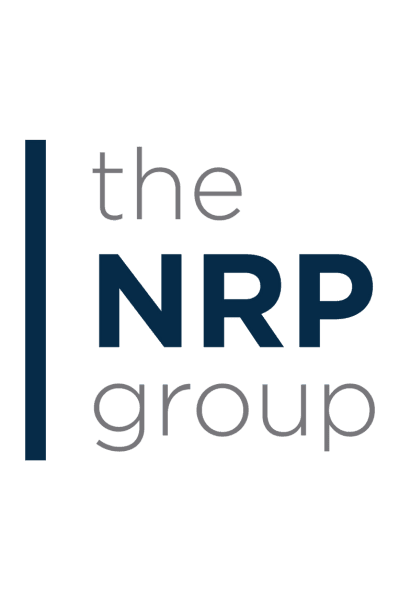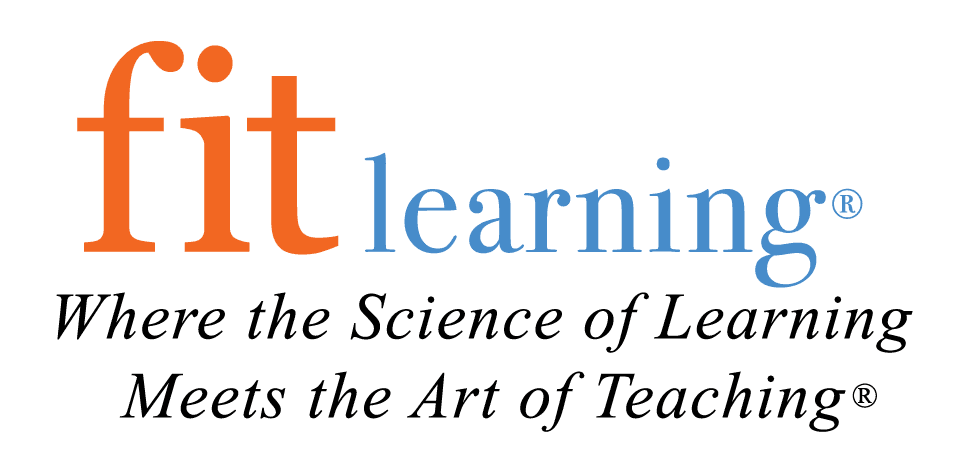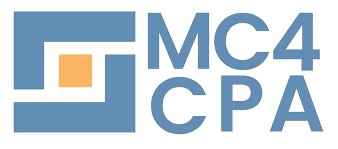External Articles Shared on Social Media
Below is a list of articles, blogs, videos and podcasts recently shared by Adoption Network Cleveland on our social media. This content has been created by individuals outside of our organization and as such is their intellectual property and opinions. Click on the date to access the content.
-
"..to leave a child alone with the reality of their own plight is to set them up to fail and suffer and—for adoptees—grief is complex. It doesn’t go away just by ignoring it, and doing so only causes their trauma to snowball out of control. It destroys their self-esteem and their ability to trust. Most devastatingly, it compromises their ability to trust themselves, which is a necessary tool for resilience and survival in this world."
Read more of Kristen's story by clicking on the date above.
-
This article demonstrates the power of consumer DNA testing and its impact on the adoption constellation. Not every story ends up as we would hope, but it is always amazing when it does. A beautiful sibling connection was found through a DNA match! Read the article by clicking on the date.
-
During the 1970s and ‘80s, a fertility specialist in Indiana named Dr. Donald Cline inseminated dozens of patients with his own sperm, without their knowledge or consent. The stories of some of these women and the (at least) 94 biological children of Cline are told in a new documentary, Our Father, just released on Netflix. Particularly relevant as ANC is active in working to pass fertility fraud in Ohio.
-
National Foster Care Month
This collection of stories connects real-life scenarios to important practices issues and raises awareness about how the foster care system can better support youth and families. They highlight things like ensuring children have access to siblings, prioritizing kin and extended family for placements and whenever possible, supporting families so that reunification is successful. Read personal stories on the Child Welfare Info Gateway. -
Marcía Hopkins, MSW, Senior Manager at The Juvenile Law Center, shares, "Zealously pursuing kinship care in policy and practice is a key strategy for promoting racial equity and family reunification in the child welfare system."
Click on the date to read the full article.
-
What are the ethical, legal, and social implications of direct-to-consumer genetic testing, and how is their wide use impacting individuals who are surprised by what they find? This story explores both one geneticist's own personal story as well as the results of a new study.
-
This Op-Ed from public policy activist Tim O'Hanlon discusses how a straightforward administrative rule change could improve outcomes for children with disabilities in foster care. Over 70% of children adopted from Ohio’s public foster care system are adopted by their foster parents. Surveys indicate a substantial majority of adoptive parents regard adoption assistance as essential to providing families for their children with disabilities.
-
Like millions of Americans, David Berry was curious about his genealogy. But as he explored his father’s side of the family, he discovered something wholly unexpected: The man he thought was his father was not related to him at all. His parents shared with him that he had been donor-conceived. As he began searching for his biological father, he discovered something disturbing - the man was not an anonymous sperm donor, but was Dr. Morris Wortman, the fertility doctor in Rochester that his mother had seen. Dr. Wortman, who still practices there, had impregnated her with his own sperm without telling her. Read the article by clicking on the date.
Adoption Network Cleveland is among organizations and individuals who are advocating for laws to protect from fertility fraud. The next hearing for Ohio House Bill 64 is taking place this Thursday.
-
Rose Anne, who would be raised by a Glenside, Pennsylvania, dentist and his wife, became a child of the country's American Indian adoption era, a decadeslong, forced assimilation of Native children first established under the Indian Adoption Project, which started in 1958 and evolved to include 50 private and public placement agencies across the United States and Canada, where the so-called "Sixties Scoop" was coined to describe the mass removal of children from Native homes. During the next 20 years, almost 13,000 Native children would be adopted.
-
Ma’Khia Bryant case shows relatives need the same resources as other foster parents.
"As advocates, we know that placing foster children – one of our most vulnerable populations – with caring family members gives children a better chance in life and keeps families together. It keeps family bonds intact, maintains stability, helps children heal from trauma, and has been shown to have the best long-term outcomes for the well-being of children.
But in Ohio, state-approved grandparents and other relatives who have taken in at least 3,900 foster youth are not getting the federally mandated payments they need to provide children with food, clothing, healthcare, and other essentials. With minimal resources, too often kinship caregivers cannot continue to provide care, and children are eventually pushed into the state foster care system, where they generally experience poorer outcomes."
Read the guest opinion Columbus Dispatch article by clicking on the date to follow the link.
-
States send kids to foster care and their parents the bill — often one too big to pay. And the two federal laws basically contradict each other: One recent law directs child-welfare agencies to prioritize reuniting families. The other law, almost 40 years old, tells states to charge parents for the cost of child care, which makes it harder for families to reunite. Listen to the story on NPR by clicking the date.
-
"So much of the adoption industry perpetuates the idea that adoption ends in a beautiful happily ever after. But when we think of adoption as an ending, we forget that it has a lasting, constant impact throughout the person’s entire life, not just their childhood. Race should not be an afterthought in adoption.
It can be exhausting for adoptees who try to bring awareness to the complexities involved in growing up as a BIPOC in a white family. Adoptees are often pressured to be grateful and simply happy that we have families, and to forget the challenges and trauma that we experienced."
-
Bias and racism are widespread in the child welfare system. Black children are taken into foster care at a disproportionately high rate and languish longer before being adopted, reunited with their parents, or aging out of the system.
-
‘I know my parents love me, but they don’t love my people.’ Adoptees of color with White parents struggle to talk with
their families about race."In one study Lee co-authored, researchers started following 116 Korean American adoptees in 2007, when the children were between 7 and 13 years old, and checked back with them in 2014 when they were between 13 and 20 years old. The study asked about their level of ethnic socialization and knowledge of their ethnic heritage. While the adoptees said their parents exposed them to things such as Korean restaurants and cultural festivals, they weren’t engaging in more complex conversations about racism as they got older.
-
Moving and powerful perspective from a birth father and a late discovery adoptee. Many layers of complexity are shared with such brilliant vulnerability and honesty.
-
"What’s happening at the Supreme Court right now is that a bunch of people who don’t live my life, who don’t live Angela’s life, are using us as a tool to further their own agenda. They’re co-opting our lives and our stories." - Kate Livingston, Ph.D., a birth parent and educator of women’s, gender, and sexuality studies
The day after oral arguments, Irin Carmon had a conversation with Angela Tucker, a transracial adoptee, host of The Adoptee Next Door, and media consultant; Kate Livingston, Ph.D., a birth parent and educator of women’s, gender, and sexuality studies; Kathryn Joyce, journalist and author of The Child Catchers: Rescue, Trafficking, and the New Gospel of Adoption; and sociologist Gretchen Sisson, Ph.D., who studies abortion, adoption, and reproductive decision-making in the United States.
-
What to say and do and more importantly - what not to say - to a birth mom. To Read, "Safety Instructions for Being There for a Woman Who Lost Her Only Child To Adoption," by clicking the date above.
If you are a birth mother who is in need of support, please consider attending our Birth Mother Support Group. More info at: https://www.adoptionnetwork.org/service-areas/adult-adoptee-birthparents/birthparent-support-group.html
-
Ever wonder how the show This Is Us gets it right? They listen.
Read about K.J. Steinberg, This Is Us writer, attending the CUB (Concerned United Birthparents) Retreat.
-
“In truth, parents themselves need to become adoption-competent, and it goes without saying, you don’t do that just by adopting a baby. So how DOES an adoptive parent become more adoption competent? "
Listen to Adoptee voices and learn from their experiences and perspective. Learn about adoption-competent therapy, and consider being proactive about seeking help and advice of an adoption-competent therapist long before you are in the throes of needing it.
-
Birth Moms Real Talk is a platform and podcast that provides an opportunity for Birth Moms to share their journey. In this episode, Nikki shares her story. Nikki is one of the facilitators for our Birth Mothers Support Group, which meets on the first Wednesday of every month (find out more on our website at: https://www.adoptionnetwork.org/service-areas/adult-adoptee-birthparents/birthparent-support-group.html)
Listen to the episode by clicking on the date above.
-
Jennifer learned that she was adopted when she was six years old. Her parents had an entire package of detailed information about her adoption which satisfied some her curiosities and sparked new ones that she wanted answers to. Thanks to some clever sleuthing her biological mother was very easy to locate. Jennifer’s adopted father had calculated who her mother likely was and pinpointed where she probably lived based on some of the information they already had. But what began as a warm introduction turned cold when Jennifer was forced to repeatedly ask her biological mother for identifying information about her biological father. When she finally learned who he was, and traced his family to their home in Florida, she learned that her deepest connection on this journey was with the father she never knew.
Listen as Jennifer shares her story on this episode of the podcast "Who am I really?"
-
As an industry, it (sperm donation) is poorly regulated. In the United States there are no legal limits, only guidelines from the American Society for Reproductive Medicine: 25 children per donor in a population of 800,000. “There’s nothing in the U.S. or anywhere that would keep a donor from donating at more than one sperm bank,” said Wendy Kramer, a co-founder and the executive director of the Donor Sibling Registry, an organization in the United States that supports donor families. “The sperm banks claim that they ask the donor if they’ve donated anywhere else, but nobody knows if they really do.”
-
Can an open adoption work in an adoption from foster care? It can't be easy, as the issues that often necessitate foster care can add stress to an already complicated situation. But these families are working to make it happen, knowing that it is critically important for children to know where they are from and maintain as many relationships as is safely possible.
-
"We live in the age of genetic reckoning...How is (DNA) transforming us? DNA revelations can be heartbreaking and confusing and uplifting and clarifying, sometimes all at once. They may cause rifts in families, or they may reconstitute them — prompting loving reunions between newfound siblings or between adoptees and birth mothers. They may lead to grievous rejections when those being sought by genetic kin don’t want to be found. They alter people’s personal narratives."
DNA testing is radically reshaping the definition of family - Libby Copeland, The Washington Post
-
In a recent blog, Mindy Stern discusses scrabble, finding her birth family, the new documentary "Wonder Boys," and why when you know where you are going, you need to know where you are from.
-
Joni Mitchell’s Blue album has it’s 50th anniversary this year. One of the songs, Little Green, is about a daughter she relinquished at birth in 1965.
-
This article offers Foster parents 5 tips for building a stronger support network that we think are spot on - and we can provide three of them at Adoption Network Cleveland AND connect you with resources for the other two!
1. Follow Along - through our Family Ties private facebook group for Adoptive, Kinship and Foster parents and guardians. http://ow.ly/tFxC50Fj6HZ2. Join a Support Group - Our support group for Adoptive, Kinship and Foster Families boasts monthly support groups (currently virtual), educational offerings for parents, groups for teens (currently virtual) and in-person social outings for the whole family. We also have a TON of summer events happening right now! http://ow.ly/pdyY50Fj6I2
3. Ask for Help - parents can reach out for one-on-one support through our helpline (216) 325-1000 and we can also provide information and referral for available supports in the community, such as 4. Access to donated items and 5. Team Up for respite care and peer support.
-
Adoption starts with loss and trauma. For many adoptees, becoming parents themselves can become a trigger for that past trauma. How do you ensure that generational trauma isn't passed on to your children? What strategies have you used that were successful?
-
Separated since birth, mother and son make Memorial Day meeting in Cincinnati. Trevor Thomas, an Air Force service member for 18 years, says he’s been looking for his biological mother for nearly two decades.
-
The recording from our April 16, 2021 partnership with the OLLIE Foundation presenting Dr. Gabor Maté on the connection between relinquishment, adoption and addiction is now available. Hear singer-songwriter, author and adoptee advocate, Zara Phillips in conversation with world-leading trauma and addiction expert, Dr. Gabor Maté on The Trauma of Relinquishment - Adoption, Addiction and Beyond.
Presented in partnership with The OLLIE Foundation -
http://ow.ly/o86c50EUKCh
and Adoption Network Cleveland - https://www.adoptionnetwork.org/Copyright of this video belongs to Dr. Gabor Maté - https://drgabormate.com/
-
Everyone at Adoption Network Cleveland is so excited for the recent public release of David Bynam's documentary "From a Place Called Love: My Adoption Journey." We were lucky enough to be a small part in David's efforts, hosting a prescreening in 2020 as part of our Monday Evening Series. David's documentary shares his journey as an adoptee searching for birth family. It can be viewed on Apple TV, Google Play, Vudu and, beginning July 1, for free on Tubi.
This recent article in "This Week: Community News" shares an interview with David and with our own Traci Onders, who provided Search Assistance for David during his search.
-
Happy International Family Equality Day (May 2, 2021) from Adoption Network Cleveland. We recognize and celebrate all families today and every day. We have compiled a list of local and national resources for LGBTQ+ families:
https://www.adoptionnetwork.org/service-areas/education-community-outreach/international-family-equality-day.html -
Keegan-Michael Key is opening up about how his adoption experience has shaped him into the person he is today. The Emmy-winning comedian gets deep about his fear of being "abandoned again."
"I have a people-pleasing issue. I do think it comes from being adopted," Key continues. "I think people who are adopted have this kind of situation where you go, 'I'm going to do everything everybody else tells me, because I don't want to get abandoned again.' I think that happens to people."
-
Although their story starts as a dark and sad one, it has grown into a beautiful story of reunion. Tito and his birth mom, Rachel, crossed paths numerous times throughout Tito's life, but only now are able to connect as mother and son. Their family's journey is a tale of Boston history.
-
Did you have an image or picture of what your parent/child was like and did it match with the reality of them in reunion? In Ross Martin's most recent blog, he shares that he had an image in his mind of his birth mom, along with ideas about how she thought and acted. For the most part, they turned out to be incorrect.
-
Eve Wiley, advocate for laws surrounding fertility fraud, is in front of Texas lawmakers again, pressing them to pass a bill giving victims more time to file complaints about fertility-doctor misbehavior with the Texas Medical Board. Eve spoke with us as part of our Monday Evening Speaker Series about fertility fraud and her personal story. A recording of her presentation can be viewed on our YouTube Channel at @AdoptionNetCle.
-
Greg Luce of Adoptee Rights Law, asked other adult adoptees what they felt were examples of myths that are used to demonize or demean adult adoptees. He chose his top 5 with insight from those who responded.
-
Adoption experts advise a full, honest disclosure of an adopted child’s origin story. This recommendation is based on years of research documenting the negative effects of secrecy on adopted individuals. Psychologists emphasize the long-term benefits trust builds between parents and their children, as well as the need adopted individuals have to know the truth about their origins in order to fully understand themselves and have healthy and meaningful relationships.
-
On this episode of the Adoptees On podcast, Dr. Susan Branco shares information about her case study of the Colombian Adoption House which includes firsthand experiences of Colombian adoptees and what happens when they find out their adoption was illicit or black-market. Her passion for family preservation is evident as she discusses systemic problems in the adoption industry.
-
In her most recent blog post, April Dinwoodie writes, "Both the pandemic and the racially motivated murders of Black and Brown persons have been particularly painful to me as I think about the Black family members that I was separated from. Each time I hear the statistics that more Black and Brown persons are dying due to Covid-19 and every time there is an innocent Black/Brown person murdered I can’t help but wonder if all of these losses of our Black and Brown brothers and sister are actually my Black and Brown brothers and sisters. I wonder if I will lose members of my family of origin before I find them." Read part 5 of April's series "How to Love a Transracially Adopted Person."
-
On "The Adoptee Next Door" podcast, Angela speaks with adoptee Nancee Winslow, about nature vs. nurture, reuniting with birth family members, and adoptees feeling the need to prove they are "well-adjusted" with their adoption. Nancee shares a powerful story about the moment she told her 4-year-old son that she was adopted and his emotional reaction.
-
Ten things adoptees want their natural parents to know about reunion.
Thank you to @rossjohnmartin for this absolutely beautiful perspective on the complexities of reunion and relationships with birthparents. -
Many Asian adoptees say they feel left out of the national conversation about anti-Asian racism because they don't feel like they belong in either the Asian American community or white America.
-
Steve Inskeep, co-host of NPR’s “Morning Edition” and “Up First,” is an adoptee and an adoptive father. He recently shared an opinion piece in the New York Times that rings true for many in the adoption community. "I am angry that for 50 years, my state (Indiana) denied me the story of how I came to live on this earth. Strangers hid part of me from myself. While I now have the privilege of knowing my information, many people’s stories are still hidden. About 2 percent of U.S. residents — roughly six million people — are adoptees, according to the National Conference of State Legislatures. A majority were adopted domestically, with records frequently sealed, especially for older adoptees."
-
Nicole Chung, author of the memoir "All You Can Ever Know" and a transracial adoptee writes, "Over the years, I’ve talked with so many other transracial adoptees who, like me, have undertaken the task of asking, sometimes begging our adoptive relatives to acknowledge our experiences; to stand with us; to challenge the racism endemic in our society as well as our own families and communities. Now, in this moment, I hope that every white parent of an Asian child is paying attention to the rise in anti-Asian hate. I hope that white people with Asian family members recognize and internalize the fact that no amount of love, good intentions, assimilation, or proximity to whiteness will protect their loved ones from racism."
Read the article by clicking on the date.
-
"Why I Took a Vow of Celibacy - In my life, sex and love have been twisted up with childhood trauma. Time for a break."
Paula McLain was born in Fresno, California in 1965. After being abandoned by both parents, she and her two sisters became wards of the California Court System, moving in and out of various foster homes for fourteen years. Her experience was far from perfect, and in a new essay, she shares a tiny window of that experience and how it has shadowed her life. Please note this piece deals with hard issues including child sexual assault, abuse, and trauma. But it is worth the read.
Paula McLain is the author of the novel “The Paris Wife.” Her new novel, “When the Stars Go Dark,” will be published in April.
-
Fertility Fraud: There are four states that have passed legislation in recent years to outlaw doctors using their own sperm to impregnate patients without their consent. Ohio is working on becoming the fifth with Ohio House Bill 64, with Ohio Representative Jena Powell as the primary sponsor. Carrie Lauterbach shares her story in a recent WCPO Cincinnati interview. Carrie recently joined Adoption Network Cleveland’s Public Policy Committee, which is taking an active stance in supporting the legislation. Betsie, our ED, was also interviewed for the piece and expressed why this legislation is so needed.
View the WCPO video segment and read the article by clicking on the date above.
-
In this podcast episode, the Disclassified Adoptee shares the story of the circumstances that led to her adoption. She walks through the narratives shared with her by both her first family and her adoptive family and how her adoption records offered unique insight to these stories. Content Warning: birth, birth trauma, separation, infertility, brief mentions of sexual assault.
-
"Finding out I had 600 half-siblings sent me on a quest to end sperm donor anonymity | CBC Documentaries"
600 half-siblings! Unfortunately, it looks like this show isn't available for viewing in the US yet, however, it does make us even more excited to host Eve Wiley and hear her presentation on fertility fraud. Eve will be with us as part of our Monday Evening Speaker Series on February 22 at 8 pm ET. Find out more and register: https://www.adoptionnetwork.org/news-events/our-calendar.html/event/2021/02/22/monday-evening-speaker-series-with-eve-wiley/321560 -
As one looks around the room at support groups for individuals impacted by adoption and DNA surprises, one doesn't see a lot of male faces. Granted, there are a few, but the majority of individuals seeking a community of support are women. Surely men would benefit from hearing other perspectives and a community to support them in their journey. So why don't men want to talk about it?
-
When Star Trek: Voyager and Orange is the New Black star Kate Mulgrew got pregnant as a young actress, she described herself as “single, alone and flooded with terror.” Mulgrew felt strongly that relinquishing her child and allowing her to be adopted was “the only choice I could make.” Over the years, few people understood the pain of her choice, except for her now ex-husband, Tim Hagan (well-known Cuyahoga County politician). Twenty-two years after her daughter’s birth and relinquishment, Mulgrew and her daughter, Danielle, reunited after years of searching for each other. Mulgrew described their relationship and reunion saying, “there is not enough time to make up for it, only enough time to love.” Learn more about their journey: http://ow.ly/wEVf50DodBP
(Artwork by Ariana Farsaii, Case Western University student) -
The Fostering Stable Housing Opportunities Act mandates federal agencies set aside vouchers for housing for youths who age out of the system so that they no longer face homelessness. Montgomery County, Ohio, helped push for this national foster care law, which was passed as part of the CARES Act.
-
Faced with an opportunity to take in two of her grandchildren years back, Frieda Hardy of Zanesville didn't think twice about becoming a kinship caregiver. It is a similar concept to foster parenting but provides very little financial aid. There are some non-governmental entities that aim to compensate for what little funds kinship caregivers are provided from the state, but it's nominal to what a certified foster parent receives. Just before the end of the year, Ohio Gov. Mike DeWine signed an executive order that will guarantee direct payments to non-foster parent families who take in children under children's services supervision beginning June 1.
-
We are so excited to see this cover review in the New York Times Book Review! American Baby by Gabrielle Glaser illustrates the history of adoption in our country through the story of one family and beyond. It weaves a rich tapestry of history, culture, religion, family, connection, place, and adoption, and is sure to bring a deeper understanding of what many adoptees have lived into the mainstream in a whole new way.
-
"Choosing to adopt a child of a different race should be a very conscious decision. Parents will need to be intentional about embracing opportunities and challenges that are associated with raising a child of another race." Pepperdine Online shares key steps adoptive parents should take to "Empower Adopted Children of Color in the Face of Racism and Discrimination."
-
Any surprise can be traumatic, but a DNA surprise raises one of life’s most fundamental questions: Who am I? Your very identity is made up of your memories, your shared stories, and experiences with family and friends. When you find out that something is not true, or not exactly true, it is a major shock to your emotional system. Psychologist Greg Markway talks to Severance Magazine about the trauma that can be caused by unexpected DNA findings.
-
Ohio Unveils Limited Plan to Pay Relatives Caring for Kids - Advocates for Ohio adults caring for related children in their custody insist a new law that raises payments for such caregivers doesn't go far enough, signaling that achievement of a solution that satisfies all parties isn't yet in hand.
-
In this episode of The Adoptee Next Door podcast, Angela Tucker speaks with Alex, a 17-year-old transgender woman, to discuss adoption, the intersections of LGBTQ culture, and how quarantine provided a silver lining for Alex's transition period.
-
Even though Leah grew up in a multiracial family of transracial adoptees with parents that espoused diversity, African American heritage, anti-racism, and tolerance, she self-describes herself as "hellbent on being seen as fully white." In this article, she talks about the journey that led her to that place of self-loathing, and what has happened since she became a mother herself.
-
The Irish government is to apologise after an investigation found an "appalling level of infant mortality" in the country's mother-and-baby homes. Established in the 19th and 20th Centuries, the institutions housed women and girls who became pregnant outside marriage. The article also notes that the mothers did not receive the level of care and support they needed, however it falls short from acknowledging abuse and forced adoption.
-
We are pleased to share a podcast today featuring our former coworker, Linda, who shared her experience as an adoptive parent in an open adoption during a recent episode of The Long View Podcast.
"Linda is an adoptive mom who found herself swimming upstream against societal norms. In 1992, Linda was chosen to be mom to her son by his first mother. That very first word of that very first phone conversation — “hello” — led Linda to see her son's first mother as a real person, facing a real-life heartbreaking challenge, and immediately Linda’s heart was opened. The power of the ensuing and enduring relationships is being documented in a book to inspire others. Linda has been a speaker and writer about open adoption over the last twenty years and was honored as an Angel in Adoption by the Congressional Coalition on Adoption Institute in 2012. "
-
Two of our favorites join together to address the complex issues adoptees face when dealing with the holidays - Leslie Johnson, MFT and Haley Radke of the podcast Adoptees On. This episode is a must!
"The holiday season is here and that means we get to ask one of our favourite adoptee therapists, Lesli A. Johnson, MFT, your questions! We can be juggling multiple families, boundary issues, estrangement and loneliness, not to mention the global pandemic. Lesli and Haley talk through some challenging situations and try to help you figure out what YOU want out of this season."
-
For children who are in foster care, or who have been adopted, the holiday season can be difficult. There are lots of feelings of loss, grief, and sadness. These emotions can be all-consuming. This episode of "The Honestly Adoption" podcasts gives parents practical steps to help their children cope with grief during the holidays.
-
Holidays and birthdays can be extremely difficult days for birthparents. Ashley and Kelsey, hosts of the Twisted Sisterhood podcast (a podcast for birthmoms), dive into discussion about how our bodies hold trauma around these milestones, and how it affects many birthmoms.
-
Adoption: The Long View Podcast, Episode 9
Dr. Abbie Goldberg has spent 15 years studying openness in adoption and the impacts on adoptive families. In this recent episode, Lori Holden, host of "The Long View" podcast features an interview with Dr. Goldberg. Listen in as she tells us how families tend to change over time regarding openness, how their openness impacts their children, the role of adoption agencies in setting expectations on both sides, and other wisdom gleaned from 15 years of following adoptive families.
